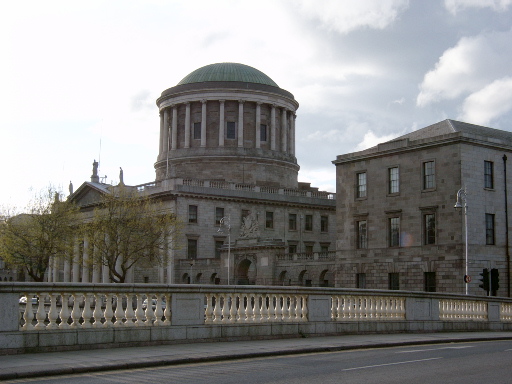
A mother has successfully sued for compensation after a prenatal test failed to diagnose a serious genetic disability in a baby that she would have otherwise aborted.
The mother is a carrier of a rare genetic condition and, when she became pregnant, worried her child might have the same condition. She had planned to exercise her constitutional right to travel to the UK for an abortion if a test showed her unborn child had the same condition, the High Court heard. The test gave a “normal” result and the woman proceeded with the pregnancy. However, the child was born with the condition and needs 24 hour care.
Because of the incorrect test, the mother claimed she was deprived of the ability to give informed consent and to make an informed choice in respect of the continuance of her pregnancy. The mother sued The Rotunda Hospital, Dublin, and Our Lady’s Children’s Hospital, Dublin. Full liability in the case was conceded by the hospitals who said that “in the particular circumstances of this case and in light of the outcome of the recent referendum repealing the Eighth Amendment to the Constitution” liability was conceded, and a public policy defence was withdrawn.
Mr Justice Cross, noting liability had been conceded, said he accepted that but he would have thought the result of the referendum had nothing to do with it.

The Irish Times science writer has warned that assisted suicide will be the next item on the agenda following the abortion referendum. Writing in today’s Irish Times, William Reville, emeritus professor of biochemistry at UCC, said the next debate in Ireland will be about whether assisted suicide should be legally available to ‘incurably ill patients suffering great distress’. He himself would not favour the proposal because he believes “it contradicts the intrinsic moral value of human life”. And, while Christian ethics rules out suicide and hospice clinicians give assurance that there is no pain that cannot be managed, he acknowledges that it is a difficult ethical and political question. Nonetheless, he strongly disagrees with the idea that all lucid adults, healthy as well as ill, should have the legal right to end their own lives. “Assenting to this would normalise suicide and euthanasia in society. We currently acknowledge that every human life is of incalculable value but, if suicide and euthanasia were normalised, human life would quickly come to be evaluated on utilitarian grounds. We must be careful not to foolishly wish for unlimited human freedom to choose – we wouldn’t like it if we got it.”
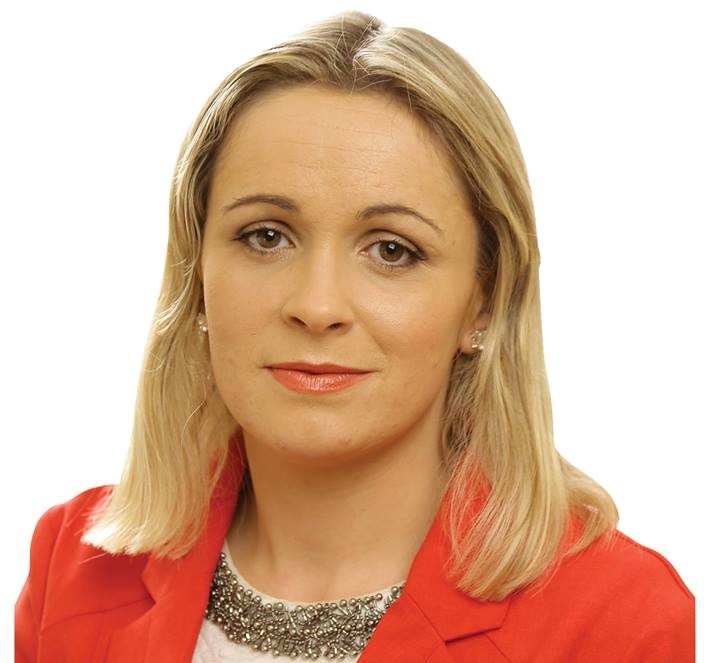
The Offaly TD Carol Nolan has resigned from Sinn Féin as she doesn’t want “any hand, act or part” in ending the lives of unborn children. She had already been on a three-month suspension for voting against the Bill to hold a referendum to repeal the Eighth Amendment and during that time had campaigned for a No vote. Since then, the party voted against allowing its members to have a vote of conscience on abortion policy.
In a statement, Ms Nolan said she felt it was “unethical to force TD’s who were strongly opposed to abortion to vote against their conscience”. She continued: “I do not want to have any hand, act or part in bringing about the end to the life of an unborn child, the most vulnerable in our society. It is not for politicians or society, in general, to decide who lives or dies. Every life is precious, and every child deserves the chance to live. I don’t believe that abortion is the solution to any crisis. How can it be when it takes the right to life away from the unborn? I cannot and will not support abortion and for that reason I have made a decision to leave Sinn Féin.”

The Cabinet has agreed to hold a referendum to delete the article of the Constitution that grants some protection to mothers from having to work outside the home due to economic pressure. The clause is often disparagingly and falsely referred to as the “woman’s place is in the home” article.
The decision to delete the article completely comes as a surprise because when the Constitutional Convention examined the issue in 2013, 98 per cent voted in favour of amending the wording to render it gender-neutral. It also proposed to include other carers both “in the home” and “beyond the home”. However, the Minister for Justice asked the Cabinet to hold a referendum to repeal the clause in its entirety on foot of a decision by an internal taskforce in the Department of Justice.
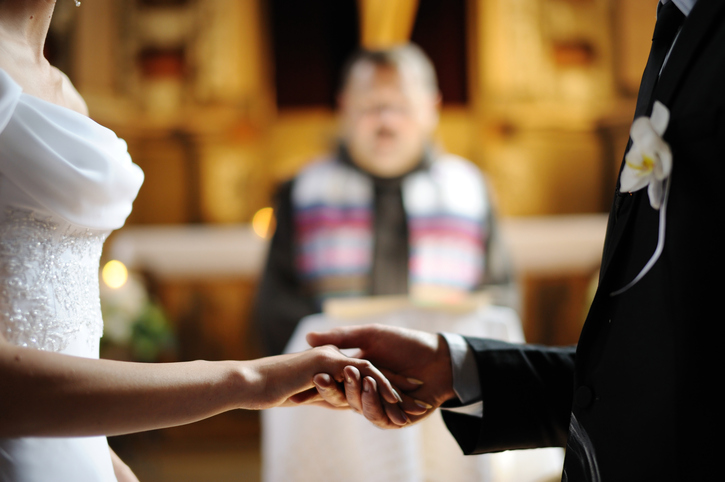
New research just published in an academic journal suggests marriage may protect against the development of heart disease and stroke as well as influencing who is more likely to die of these diseases.
Researchers at Keele University in the UK drew on 34 previously published studies involving more than 2 million people aged 42-77 from all across the globe. Analysis of the data revealed that, compared with people who were married, those who were never married, divorced or widowed had a 42 per cent higher risk of developing cardiovascular disease and a 16 per cent higher risk of coronary artery disease. Not being married was also associated with a heightened risk of dying from both coronary heart disease (42 per cent) and stroke (55 per cent).
Further analysis shows divorce is associated with a 35 per cent higher risk of developing heart disease for both men and women, while widowers of both sexes were 16 per cent more likely to have a stroke. While there was no difference in the risk of death following a stroke between the married and the unmarried, this is not the case after a heart attack; the risk of which is significantly higher (42 per cent) among those who had never married.
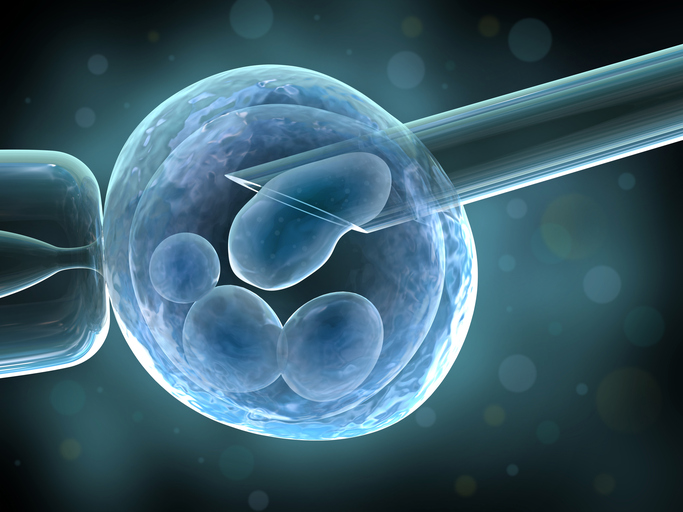
RTE’s Drivetime has asked if the use of donor eggs and sperm from anonymous sources raises ethical concerns given that those children will never know who their genetic parents are. The discussion took place against a background of controversy concerning falsification of adoption certificates by adoption societies in the past.
Mary Wilson interviewed a woman who used “double donor IVF” at age 46 to become pregnant with an embryo created from anonymous egg and sperm. She obtained the embryo in a private clinic in Prague in the Czech Republic where gamete donation must be anonymous by law. She said at the time she and her husband did not talk in detail about the consequences down the road for their child of his anonymous parentage: “it wasn’t something that caused us any consternation”. She did admit though that it does cause her “a small measure of concern”.
Dr Cathy Allen, a consultant obstetrician at Holles Street, said that people often go to the Czech Republic because “access is quite easy” and then they return to Holles Street for ante-natal care. Regarding anonymous donation, she said that doctors do not want to cause any harm, “but you likewise are not there to play God or be in judgement over people and what they decide is right for them and their families.”
She advised that legislation in this area should not be too-restrictive a she felt there is currently not good data on the subsequent welfare of the child, adding that people who say they are damaged may come from donor-conceived support groups and may well be biased. Dr Allen is herself a consultant with the private Merrion Fertility Clinic.

The Central Statistics Office (CSO) is assessing whether to recognise and record citizens who identify as neither male nor female in the next national census, with the traditional ‘binary choice’ likely to be widened by new definitions of gender.
The CSO has received a number of submissions from groups such as Transgender Equality Network Ireland and the organisation for young gay, lesbian, bisexual and transgender people named BeLonG To and have decided to assess the need for change in a series of smaller household surveys. They will be carried out in thousands of homes in the first three months of next year will include specific questions on gender.
A CSO statement to the Sunday Independent said: “CSO currently asks respondents to specify their sex, male or female. CSO has engaged with stakeholder groups to explore the development of statistics on gender identity. As part of this, CSO is planning an assessment of the inclusion of specific questions on gender identity in its household surveys.” These questions will be asked in a household survey on equality and discrimination.
The size of Ireland’s transsexual and inter-sex population is not known. The HSE defines transsexual as someone whose gender identity is ‘opposite’ to the sex ‘assigned’ to them at birth. Inter-sex is defined by the HSE as “individuals who cannot be classified using the medical norms of so-called male and female bodies”. The health authorities state that ‘gender fluid’ people experience different gender identities at different times. The HSE website states “A gender fluid person’s gender identity can be multiple genders at once, then switch to none, or move between single gender identities.”

The Supreme Court of Canada has ruled that law societies may deny accreditation to a Christian law school because of its Christian-based, campus code of ethics. Trinity Western University’s law school asks students and faculty to follow its “Community Covenant” based on biblical views of appropriate sexual behaviour on campus. This covenant was deemed discriminatory by some law societies, leading to a denial of accreditation.
While six Canadian provinces agreed to recognise the school’s graduates, Ontario denied recognition and Trinity Western appealed. In British Columbia, the local law society appealed. The British Columbia Court of Appeal ruled in favour of Trinity Western and stated that this case demonstrated how “a well-intentioned majority acting in the name of tolerance and liberalism, can, if unchecked, impose its views on the minority in a manner that is in itself intolerant and illiberal.” After the law society appealed, the Supreme Court heard both appeals together in December 2017. Last Friday they ruled in favour of the denial of accreditation. Two justices, Russell Brown and Suzanne Côté, dissented, expressing the view that “legislatively accommodated and Charter-protected religious practices, once exercised, cannot be cited by a state-actor as a reason justifying the exclusion of a religious community from public recognition.”
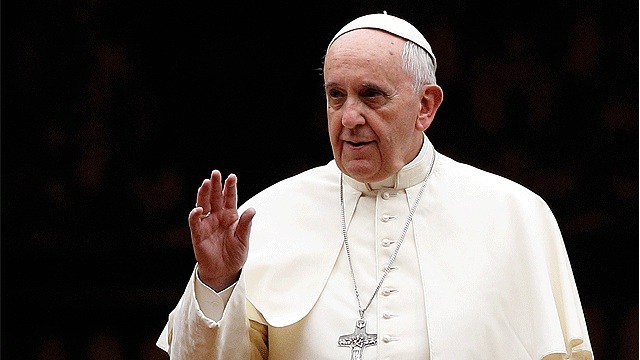
In an off-the-cuff talk on Saturday, Pope Francis compared the practice of aborting the disabled to Nazi ideology and reaffirmed that only the family founded on one man and one woman is the true image of God. Speaking to an Italian family association, the Pope said: “I’ve heard that it’s fashionable, or at least usual, that when in the first few months of pregnancy they do studies to see if the child is healthy or has something, the first proposal in such a case is, ‘Do we get rid of it?’”
This, he said, is “the murder of children…to get a peaceful life an innocent [person] is discarded”
Francis recalled that as a child he was horrified to hear stories from his teacher about children “thrown from the mountain” if they were born with malformations. “Today we do the same thing,” he said. “Last century, the whole world was scandalised by what the Nazis did to purify the race. Today, we do the same thing but with white gloves,” Francis said.
On the family, he noted that in modern society “one speaks of different types of family,” defining the term in different ways.
“Yes, it’s true that family is an analogous word, yes one can also say ‘the family of stars,’ ‘the family of trees,’ ‘the family of animals,’” he said, but stressed that “the family in the image of God is only one, that of man and woman…marriage is a wonderful sacrament.”
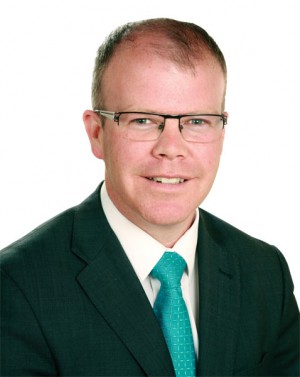
The Sinn Féin ardfheis has rejected a motion to allow its members a conscience vote on abortion, thereby imperiling the political futures of two of the bright stars of the pro-life movement.
Offaly TD, Carol Nolan, was the only TD in the Dáil to lose the party whip when she voted against holding the referendum to repeal the 8th Amendment. Peadar Tóibín, who was absent with permission from that vote, campaigned tirelessly to save the Eighth Amendment though he had to state the party’s official position in favour of repeal in every media appearance he made. He had previously lost the party whip in 2013 when he voted against the Fine Gael/Labour Abortion Act of that year. Both have indicated that they will also oppose the Government’s proposed legislation to make abortion available ‘on request’ up to 12 weeks, and on vague health grounds up to 24 weeks. The motion requesting that all “Sinn Féin members be allowed to articulate and vote on the issue of abortion in accordance with their conscience” was rejected by a majority of those present at the meeting which, unlike Fine Gael or Fianna Fáil, decides policy for the party.